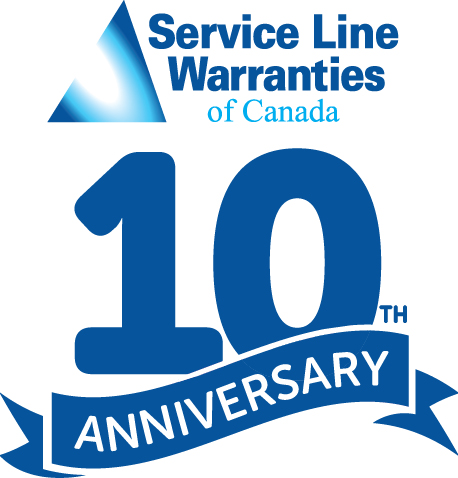With colder weather comes the possibility of frozen and burst pipes. Your residents should be winterizing their home plumbing system to prevent an emergency home repair.
If pipes freeze, there’s a chance that the pressure builds up in the pipes may cause them to rupture. In that case, homeowners should turn off water at the main shutoff valve, usually at the point where the water enters the house and call a plumber immediately. No pipe is immune to freezing, and even a small crack in plumbing can spew hundreds of gallons of water, damaging the home, furniture and property. Water damage can cost thousands of dollars and cause mold to develop.
Most winterization includes simple DIY tricks that should neither be too expensive nor too time consuming. Investing in winterization will proactively prevent minor annoyances like frozen pipes or major damage such as a burst water line or frozen water or sewer service lines.
Winterization starts outside – if a home has outdoor faucet bibs or sprinklers, these should be shut off and drained for the winter. If any water remains in the line between the faucet and the shut off valve, it may freeze. Any hoses or splitters should be removed and drained as well. Leave the tap open to relieve pressure.
Next, look at any lines that are exposed. Most of these lines will be found where the water service line comes into the house, likely in a basement, utility room or garage, or beneath kitchen and bathroom sinks. These lines are the ones most likely to freeze, and possibly burst. If a pipe is exposed, it can be easily and quickly insulated with a sleeve that can be purchased at your local hardware store. Pipes should be thoroughly cleaned before they’re insulated and ends and seams secured with duct tape.
Pipes in exterior walls are a little trickier. If the home hasn’t been insulated in a decade or more – or if a homeowner isn’t sure if or when a home was insulated – it may be time for an energy audit. Most insulation should last 80 to 100 years, but, if it was fiberglass insulation installed more than 15 years prior or has been damaged, it may need replaced.
While homeowners may have to hire a professional to address insulating the walls, they can grab a caulk gun and weatherization strips and seal up drafts, especially around doors and windows, themselves. Something as simple and easy as replacing a door sweep can draft-proof a home, reduce their energy bill, keep their home comfortable and the water pipes flowing.
To prevent interior pipes from freezing, homeowners should insulate spaces such as attics and crawl spaces and keep their homes at or above 8 degrees. If pipes do freeze, homeowners should open taps to relieve pressure on the pipes and apply heat by using heating tape or a space heater. Using an open flame is dangerous and can result in a house fire, which is much worse than frozen pipes.
Having pipes run on a slight drip while the temperature is below freezing could help your residents avoid these issues. It’s a great life hack to help avoid frozen pipes as it keeps water flowing and helps prevent them from freezing.
Of course, none of this will help those residents who experience frozen water or sewer service lines. Our Canadian frost can penetrate several feet underground, some times deep enough to impact the pipes, and there’s little residents can do about it, although some communities’ public works crews try tactics such as forcing hot water down the line from the home to the main or steam heating the pipes.
Residents in your community may not have considered that, during a cold snap, plumbers may be in high demand and short supply, meaning they may be without water or partial use of their facilities for several days. Depending on how extensive the loss of water is, residents may be forced to relocate until service is restored.
You can help prevent that with Service Line Warranties. Service Line Warranties mails educational materials to residents at no cost to the city and offers a suite of emergency home repair plans, including water service lines and in-home plumbing, at a low monthly rate. Service Line Warranties has a network of contractors, all of whom have gone through extensive background screenings, are licensed and insured in your local community, are familiar with your municipal code and have high post-job customer satisfaction scores.
Instead of searching for an available plumber during the busy season, your residents could make one call to our call centre, which is available 24/7/365, and have a local plumber dispatched to their home to fix their plumbing issue.
Contact us to learn more about how we can help give your residents peace of mind this winter.
Tips to share with homeowners:
If you fear a freeze, keep the cold water on at a trickle – a continuous flow will prevent pipes from freezing solid. Additionally, open your cabinets to allow warm air to circulate next to the walls and keep your thermostat set at a minimum of 8 degrees.
If pipes are in an area that isn’t insulated, such as garage, crawl space, attic or basement, keep all exterior doors and windows closed and seal drafts. You can buy inexpensive pipe insulation sleeves at your local hardware store. Also, turn off and drain water from exterior pipes, such as faucet bibs and sprinkler systems.
If pipes have frozen, turn the water on to relieve pressure and alert you when it begins running again. Use heating tape, a hair dryer, heating pad or space heater to warm the pipes. Do NOT use an open flame – this is a fire hazard!

